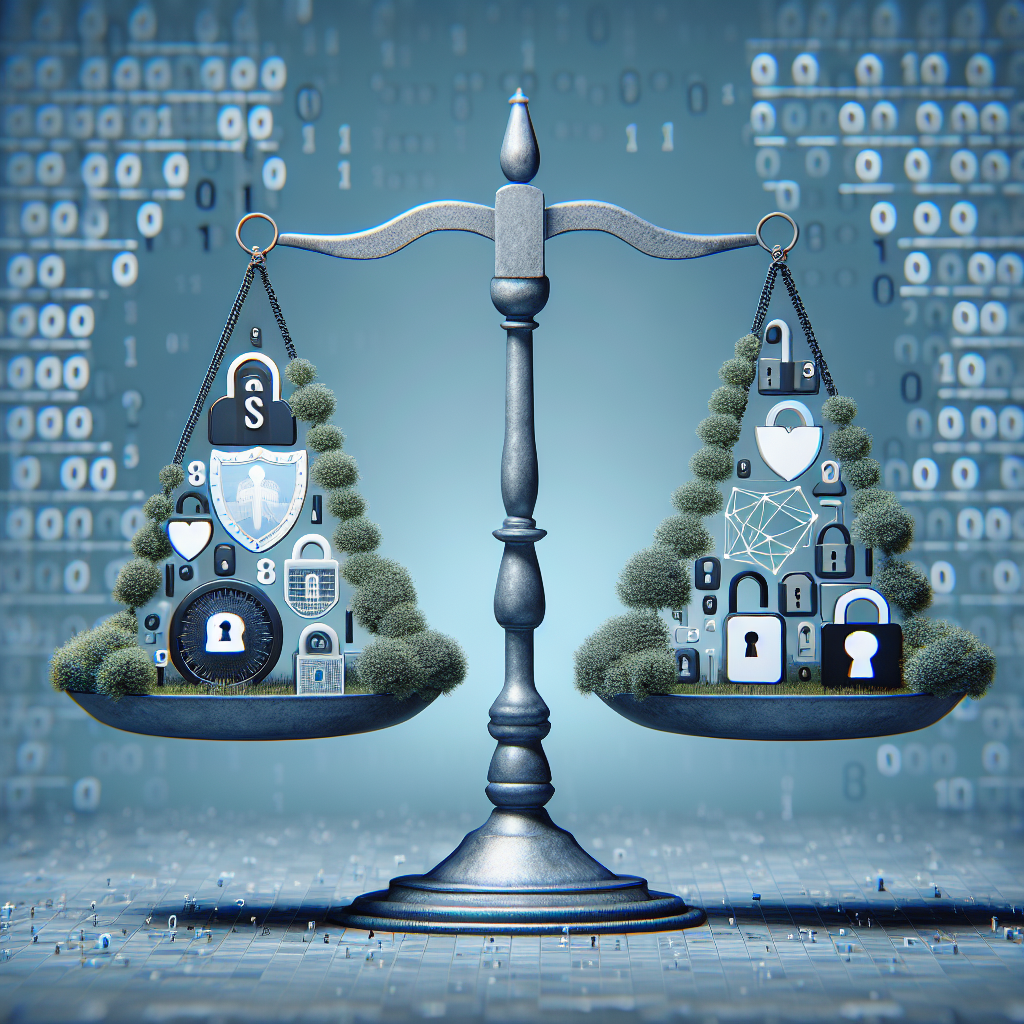In today’s digital age, the use of artificial intelligence (AI) has become increasingly prevalent in various aspects of society, including national security. AI technologies have the potential to greatly enhance the capabilities of intelligence agencies in detecting and preventing threats, but they also raise concerns about privacy and civil liberties. Balancing national security with AI privacy concerns is a complex and challenging task that requires careful consideration of the potential benefits and risks.
National security agencies around the world are increasingly turning to AI technologies to help them sift through vast amounts of data and identify patterns that may indicate potential threats. AI algorithms can analyze large volumes of data quickly and efficiently, helping to identify trends and anomalies that human analysts may not be able to detect. This can be particularly useful in identifying potential terrorist threats or other security risks.
However, the use of AI in national security also raises concerns about privacy and civil liberties. AI algorithms are only as good as the data they are trained on, and there is a risk that biased or incomplete data could lead to discriminatory outcomes. There is also a risk that AI technologies could be used to infringe on the privacy of individuals, by monitoring their online activities or collecting sensitive personal information without their knowledge or consent.
Balancing national security with AI privacy concerns requires careful consideration of the potential risks and benefits of using AI technologies in intelligence gathering and analysis. It also requires robust oversight and accountability mechanisms to ensure that AI systems are used in a responsible and ethical manner. Here are some key considerations for balancing national security with AI privacy concerns:
1. Transparency and Accountability: National security agencies must be transparent about the use of AI technologies in their operations and be held accountable for any potential privacy violations. This includes clearly communicating the purpose and scope of AI systems, as well as the data sources and algorithms used.
2. Data Protection: National security agencies must take steps to protect the privacy of individuals’ data when using AI technologies. This includes ensuring that data is collected and stored securely, and that proper safeguards are in place to prevent unauthorized access or misuse.
3. Ethical Use of AI: National security agencies must ensure that AI technologies are used in an ethical manner, and that they do not infringe on the rights and freedoms of individuals. This includes avoiding the use of biased or discriminatory algorithms, and respecting individuals’ right to privacy.
4. Oversight and Review: There must be robust oversight and review mechanisms in place to monitor the use of AI technologies in national security operations. This includes independent audits and assessments of AI systems to ensure that they are being used in a responsible and lawful manner.
5. Public Trust and Engagement: National security agencies must engage with the public and other stakeholders to build trust and confidence in the use of AI technologies. This includes being transparent about their operations and seeking feedback and input from the public on the use of AI in national security.
Despite the potential risks and challenges, there are also significant benefits to be gained from using AI technologies in national security. AI algorithms can help intelligence agencies to identify and respond to threats more quickly and effectively, potentially saving lives and preventing attacks. AI technologies can also help to automate routine tasks and free up human analysts to focus on more complex and strategic issues.
In order to balance national security with AI privacy concerns, it is essential to strike the right balance between security and privacy. This requires careful consideration of the potential risks and benefits of using AI in intelligence operations, as well as strong oversight and accountability mechanisms to ensure that AI technologies are used in a responsible and ethical manner. By following these principles, national security agencies can harness the power of AI while also protecting the privacy and civil liberties of individuals.
FAQs:
1. What are some examples of AI technologies being used in national security?
Some examples of AI technologies being used in national security include predictive analytics, facial recognition, and natural language processing. These technologies can help intelligence agencies to analyze vast amounts of data quickly and efficiently, identify patterns and trends, and make sense of complex and unstructured data sources.
2. How can national security agencies protect the privacy of individuals when using AI technologies?
National security agencies can protect the privacy of individuals when using AI technologies by implementing robust data protection measures, ensuring that data is collected and stored securely, and that proper safeguards are in place to prevent unauthorized access or misuse. Agencies can also use anonymization and encryption techniques to protect sensitive personal information.
3. How can national security agencies ensure that AI technologies are used in an ethical manner?
National security agencies can ensure that AI technologies are used in an ethical manner by avoiding the use of biased or discriminatory algorithms, and by respecting individuals’ right to privacy. Agencies can also conduct regular audits and assessments of AI systems to ensure that they are being used in a responsible and lawful manner.
4. What role do oversight and accountability mechanisms play in balancing national security with AI privacy concerns?
Oversight and accountability mechanisms play a critical role in balancing national security with AI privacy concerns by monitoring the use of AI technologies in intelligence operations, and holding agencies accountable for any potential privacy violations. These mechanisms help to ensure that AI systems are used in a responsible and ethical manner, and that individuals’ rights and freedoms are protected.

